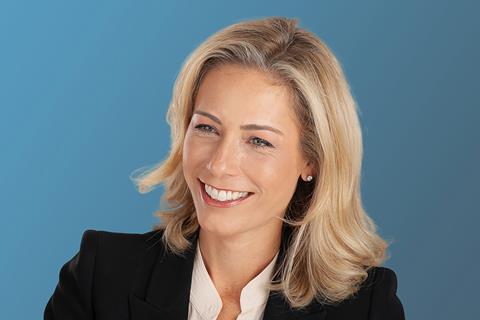Suzanne Spears recently left the partnership at Allen & Overy to establish a new boutique business and human rights law firm, which will launch in the autumn

I was lucky to grow up in Los Angeles during the 1980s and early 1990s – a great time and place to be young, but also a time of trouble. I went to schools that embodied the city’s rich diversity, and had teachers and parents who fostered empathy and respect for others. But people I loved faced racism and the city’s divisions were clear. These experiences inspired in me an interest in social justice and law.
Leaving sun and surf behind, I went to study international relations and then law on the east coast. I received a bachelor’s and then master’s degrees in international relations from Tufts University in Massachusetts and Columbia University in New York respectively. I then received a Juris Doctor from Columbia and qualified in New York. As part of my studies, I spent two wonderful years in Spain – first in Madrid during my undergraduate years, and later as a US Fulbright Scholar in Barcelona.
I worked at the Inter-American Institute of Human Rights (part of the Inter-American Commission and Court system) in Costa Rica. My primary role was to help support government delegations negotiating at the UN to establish a complaint and inquiry mechanism for the Convention on the Elimination of All Forms of Discrimination against Women. I also worked with the Office of the UN High Commissioner for Human Rights in Colombia when the human rights situation was very tense and peace talks with guerrillas were just getting under way. Later, I served as research associate for International Law and Organisations at the Council on Foreign Relations in New York.
These experiences highlighted the interaction between globalisation and human rights. Companies were already having a huge impact on lives and communities: regulation would surely follow. I wanted to advise and represent them when it did.
'Whatever you think about the new wave of ESG regulation and litigation – the need for it, whether it goes too far or not far enough, and its approach – it is here to stay'
In 2002, I joined Debevoise’s international disputes group in New York and was seconded to the London office for a year. I soon made the move permanent, joining WilmerHale and then boutique public international firm Volterra Fietta in London. I eventually joined Allen & Overy’s partnership in 2018 as a member of the international arbitration team and co-head of the global business and human rights practice.
In my disputes practice, I have specialised in commercial and investor-state arbitration, and disputes involving Latin America and Africa, ESG issues and sectors ranging from mining to financial services. I have also handled transnational tort litigations, OECD complaints and claims before other non-judicial mechanisms, and advised corporates and financial institutions on business human rights issues, in some cases on retainer to the general counsel.
Whatever you think about the new wave of ESG regulation and litigation – the need for it, whether it goes too far or not far enough, and its approach – it is here to stay. Along with activist shareholders and consumers, it is prompting companies to seek legal and consulting advice about human rights. This is not about yesterday’s CSR – nice-to-have philanthropy – but about the legal, financial and reputational risks associated with a business having adverse impacts on people. To avoid greenwashing, companies need advice from international human rights lawyers who understand their business imperatives as well as the geopolitical issues and local conditions in which they operate.
A boutique is better suited to meet that demand. Some reasons are obvious: fewer conflicts, lower costs and overheads, flexible fees, and greater partner access. Others are specific to business and human rights.
Many lawyers want to set up their own shop, but the start-up challenges deter them. Some challenges, such as replicating ‘big law’ support services, are proving easier to manage than I expected. Other things have been fun, especially receiving expressions of interest in joining the firm. The firm will be founded on the principle of audi alteram partem or ‘let both sides be heard’. This is a fundamental legal principle that underpins corporate due diligence responsibilities and is key to resolving human rights disputes.































No comments yet